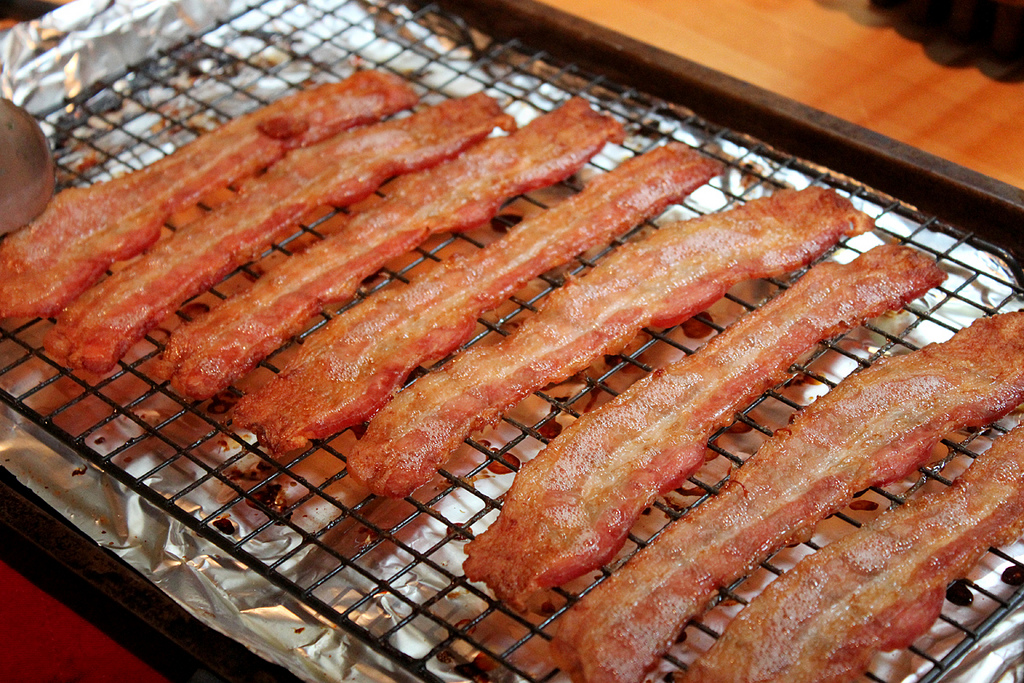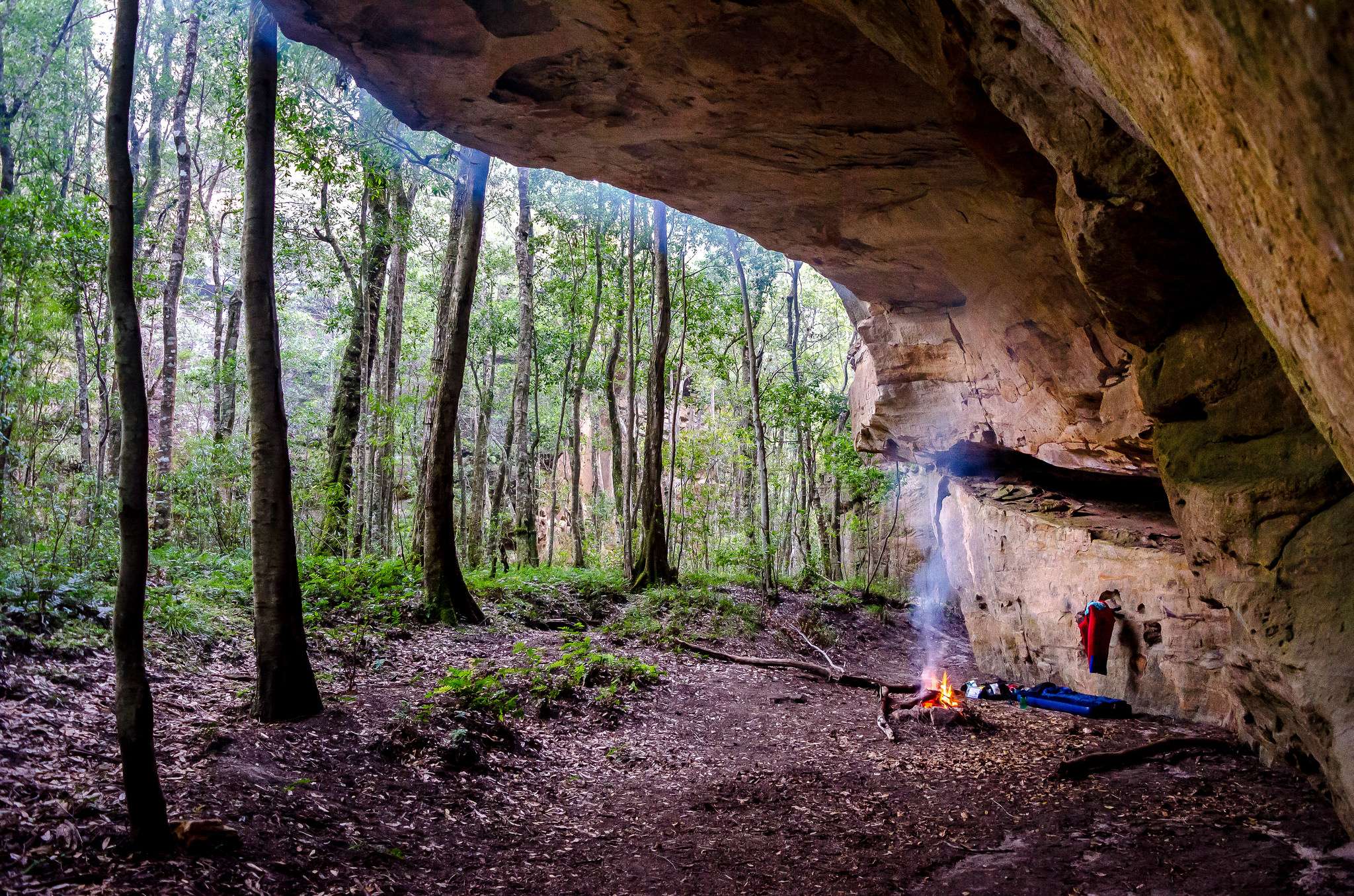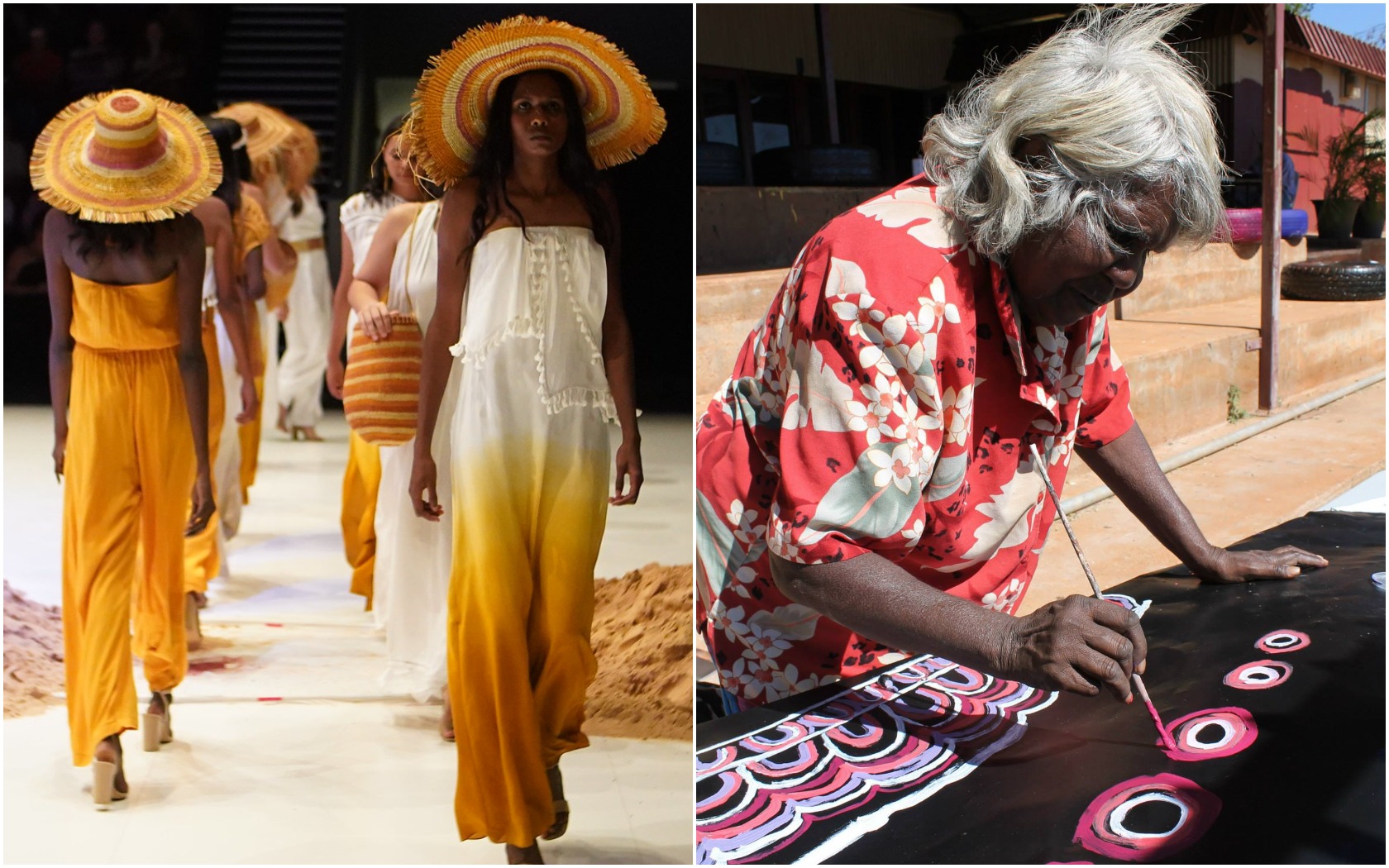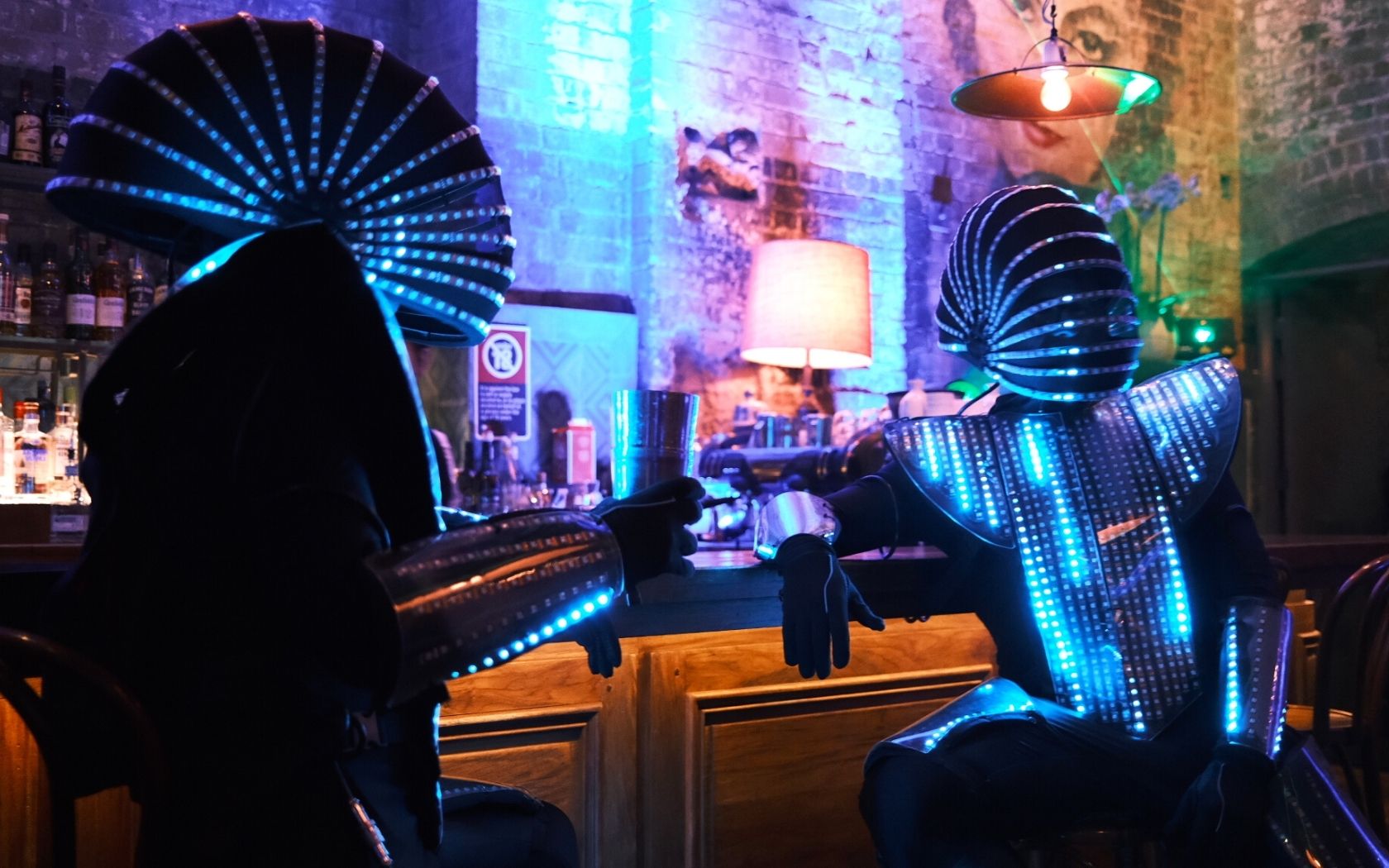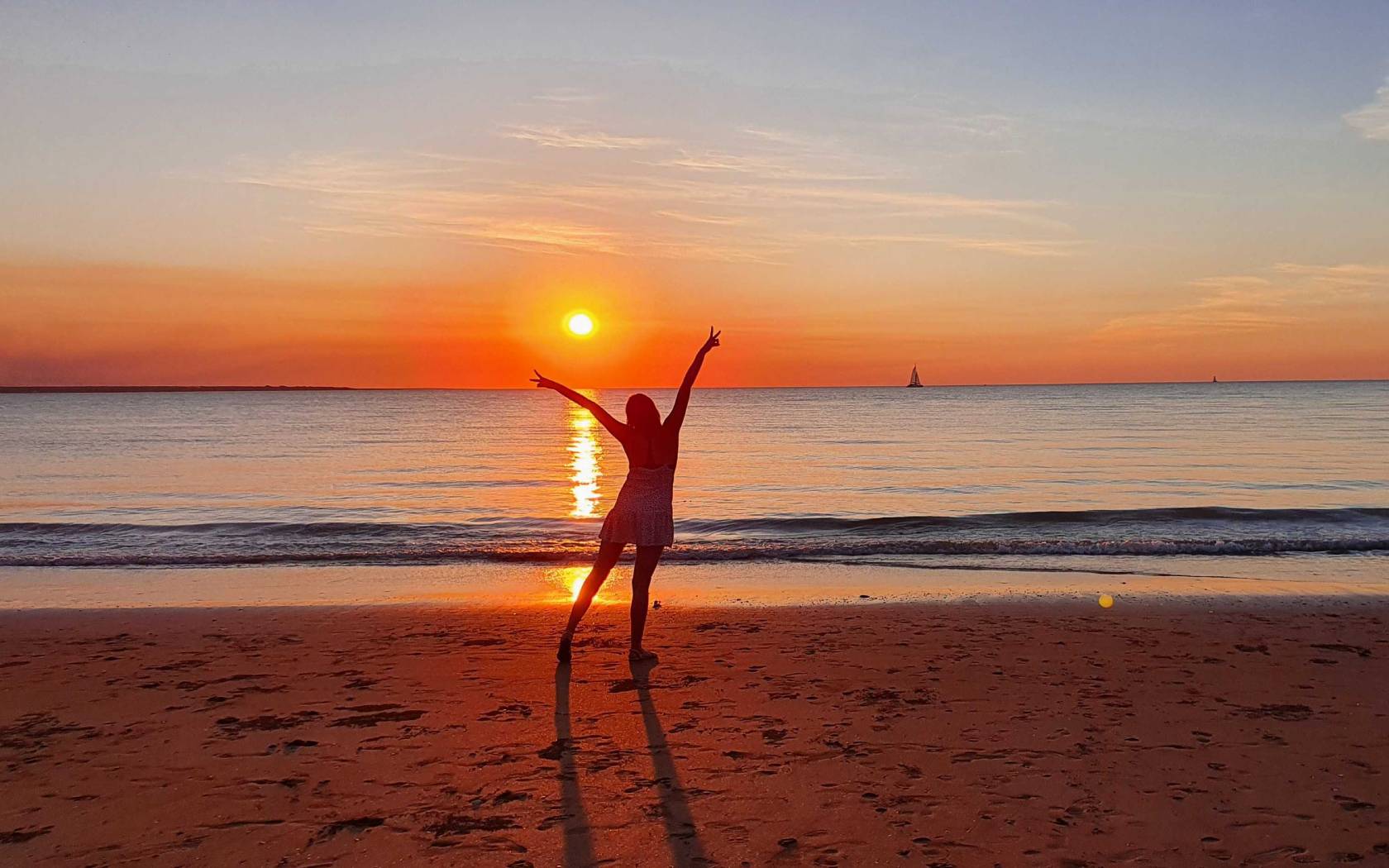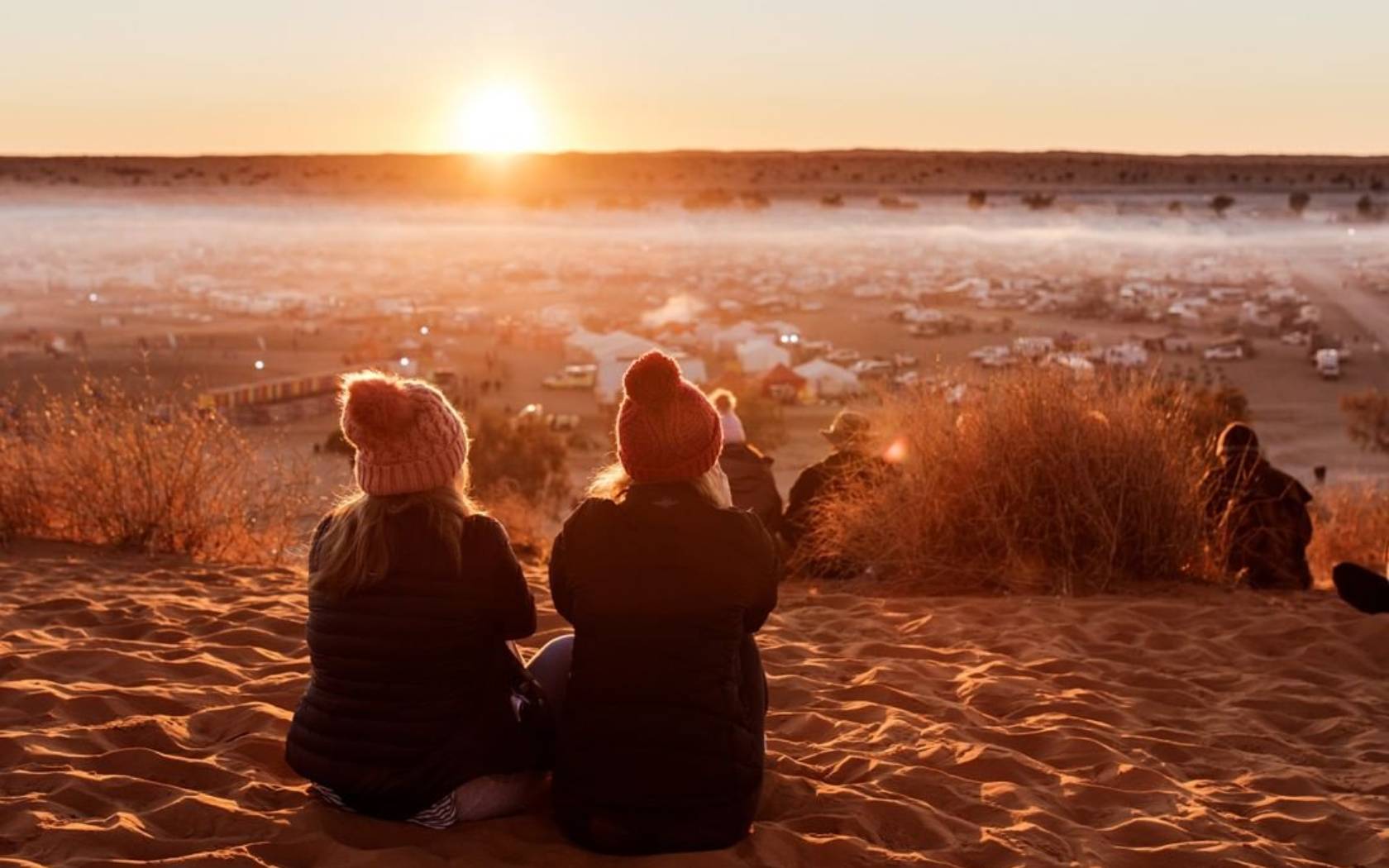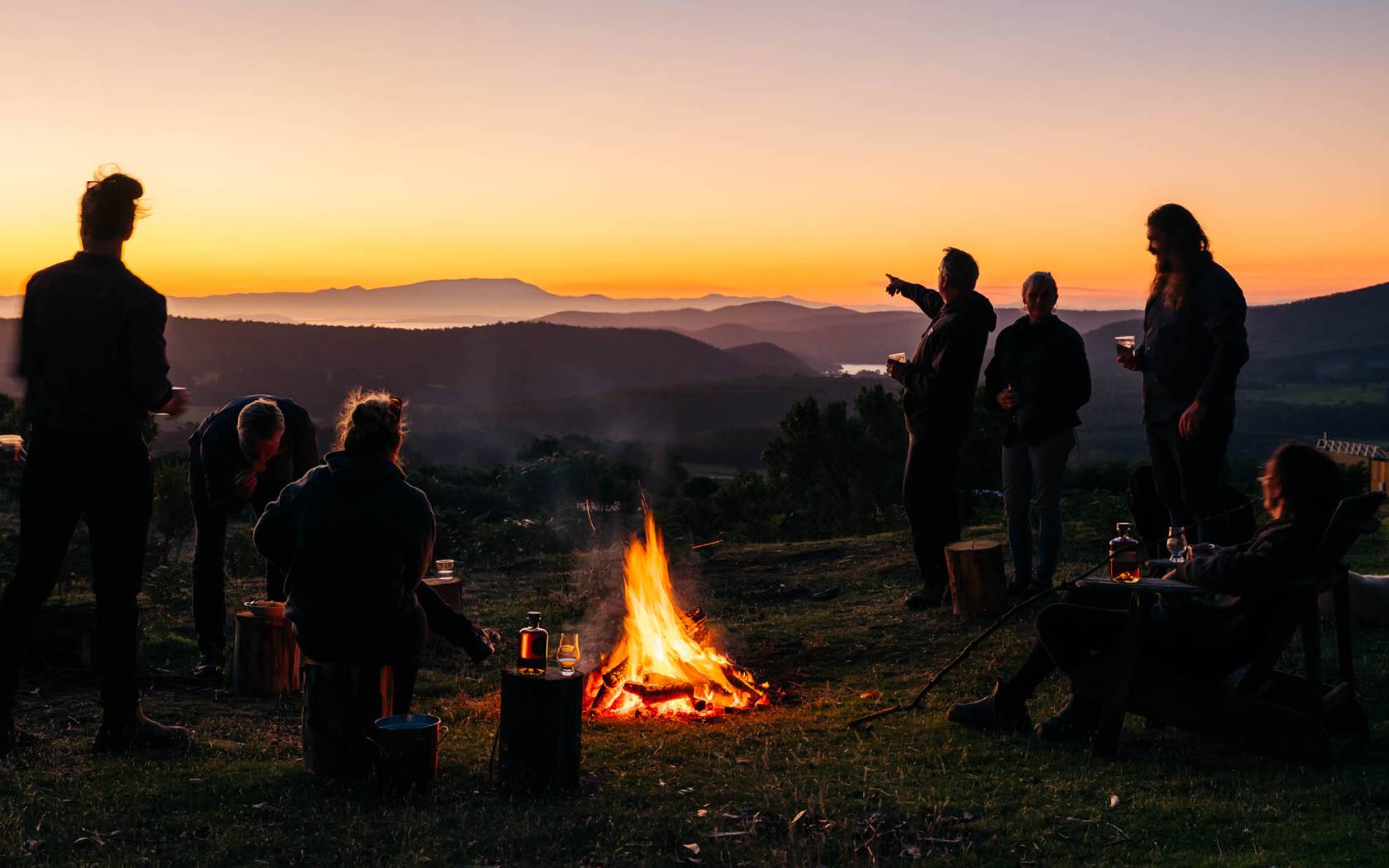A Festival Called Panama Just Raised The Bar For Festivals Everywhere
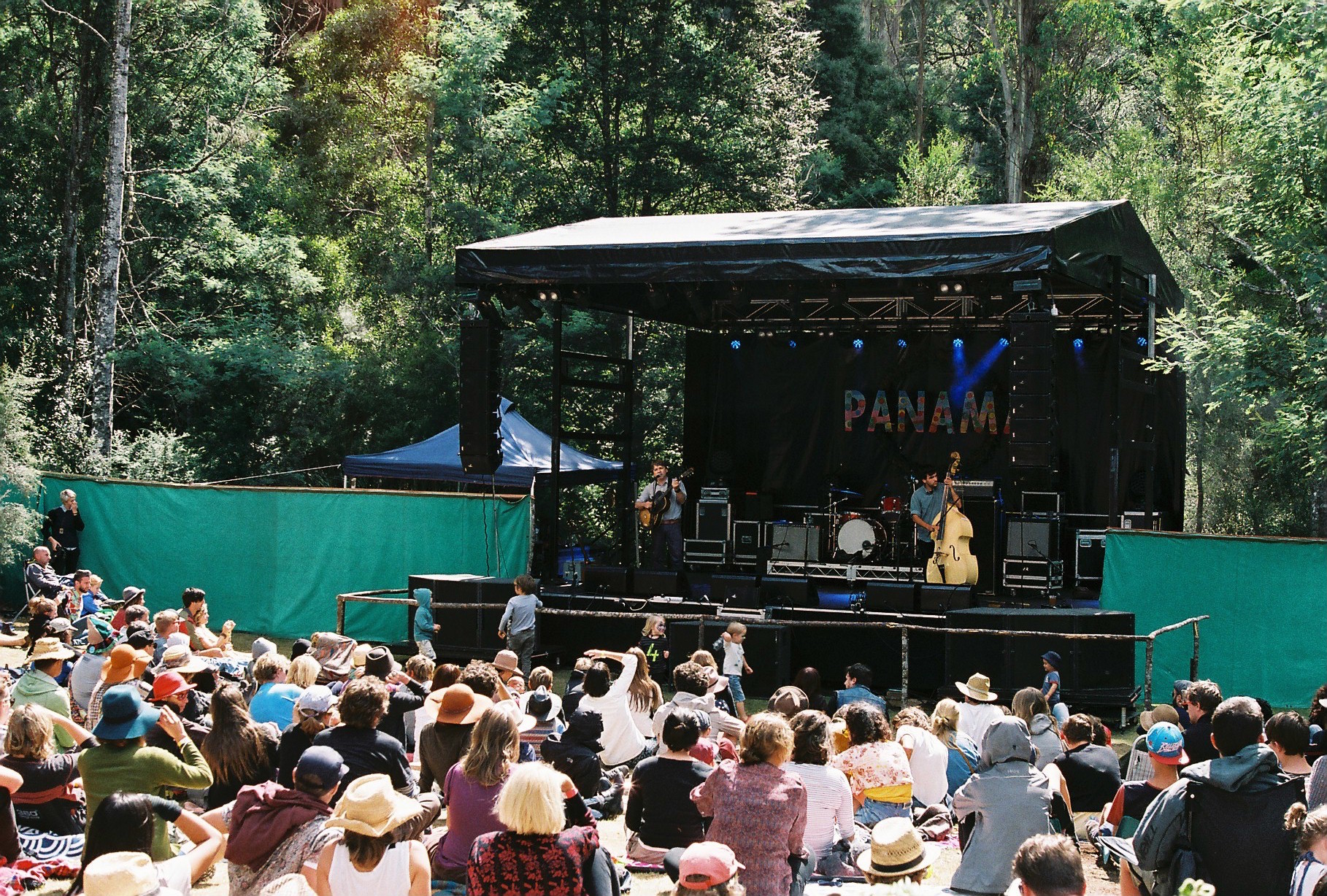
Will is a writer, photographer and creative producer. Originally hailing…
Deep in the pine forests of north-west Tasmania is A Festival Called Panama. As WILL DAWSON found out, it’s not your average music festival.
I’m calling it now: the Australian festival culture of the ’90s is dead. What once was a great way to see all of your favourite bands in one day along with a couple of thousand of your closest mates has devolved into a sad state of mediocrity. Who wants to drop a couple of hundred bucks on a regurgitated lineup of bands, spend half the day queuing for everything from toilets to $10 mid-strength beers, only to end up so far away from that one band you actually like? It’s no wonder that even stalwarts are failing.
And then there’s A Festival Called Panama. Now in its second year, Panama prides itself on being everything that other festivals aren’t. Set on a cider farm, it’s a much more civilised affair. Two days of music and art over Tasmania’s Labour Day weekend, the festival only sells 1000 tickets. No more, no less. Those lucky enough to score a ticket are promised a relaxed, intimate weekend of great tunes, art and locally-produced food and drink. Did I mention it’s on a cider farm?
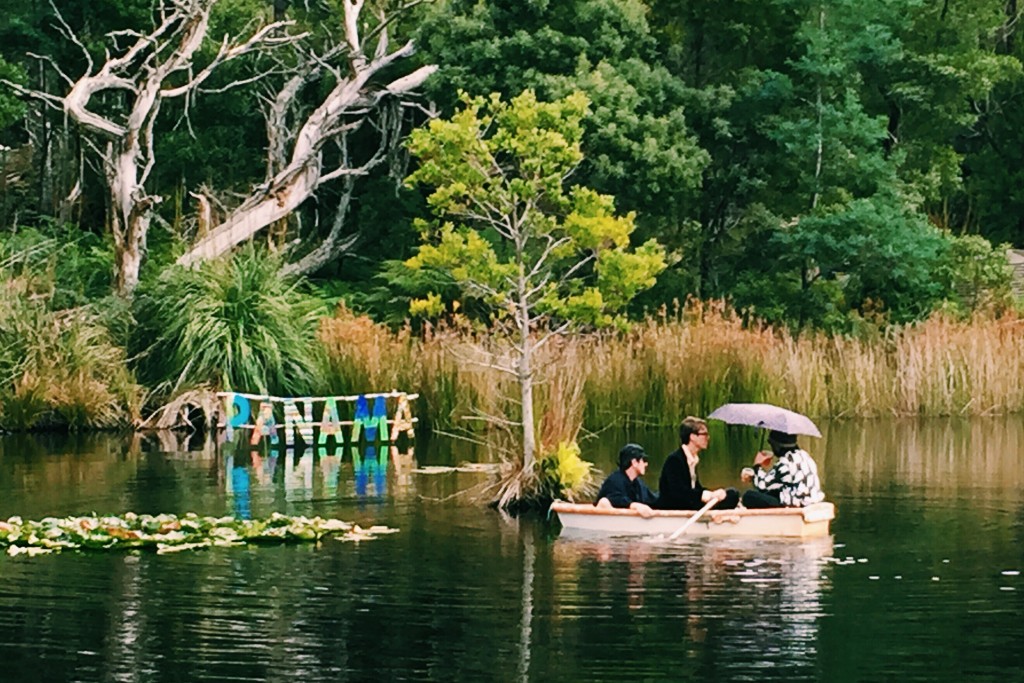
Saturday
We fly into Launceston to a crisp autumn morning. A lady called Shirley meets us at the airport in a beat-up Mitsubishi Magna that is to be our hire car for the weekend. Before heading to the festival we can’t resist stopping at some of Launceston’s op shops. The retro craze doesn’t seem to have reached here yet, and we pick up some outrageously loud shirts for a couple of bucks. When a clerk at one of the stores hears that we’re going camping he gives us a bag of bread rolls for good luck.
A short drive later and we’ve left civilisation behind and are deep in Lone Star Valley. Even as we follow the winding dirt road into the festival site we don’t see another soul. We start to wonder if we’ve got the day wrong. Once we arrive though we are personally greeted by the some of the organisers, handed a (bio-degradable) info booklet and are chauffeured to a campsite. We’re not even forced to camp close to our neighbours.
The setting of Panama is nothing short of stunning. Dense pine forest surrounds a small clearing dotted with apple trees. Nature looks ready to take over at any moment. The smell of moss and wet leaves permeates the air. A lake adorned by a rustic wooden cabin sits in the middle of the site. Festoon lights and bunting hang among the trees. A crescent of food trucks (all who seem to be serving at least one type of wallaby) provide sustenance for the weekend. There’s not a security guard in sight – in fact, we don’t see one the entire festival.
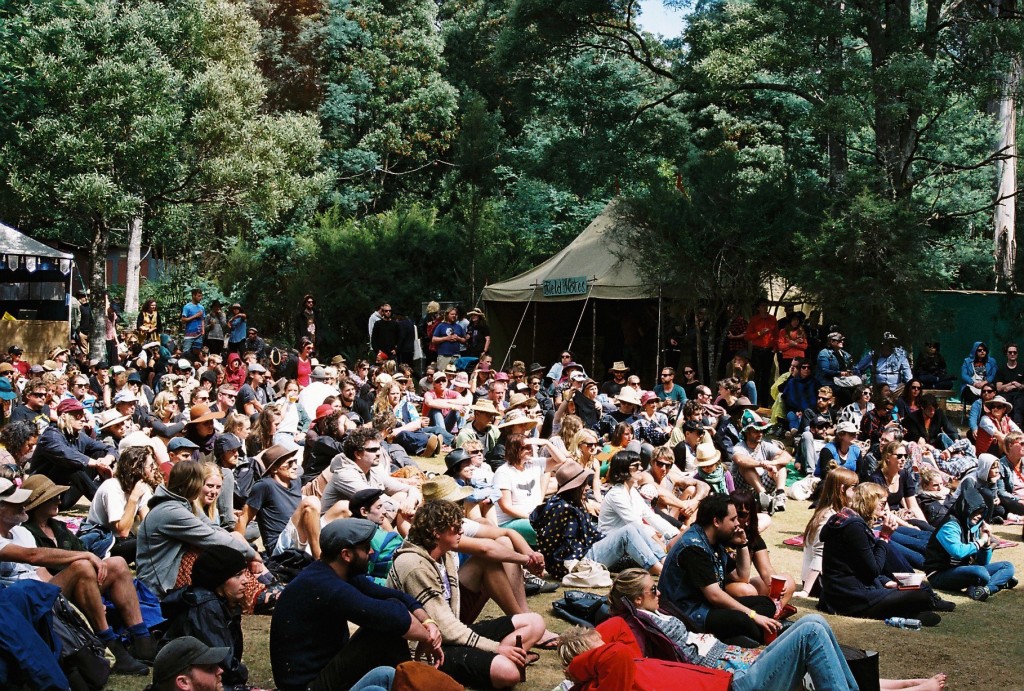
We arrive just in time to catch Brisbane troubadour Ben Salter playing. Everyone is lounging around on picnic blankets. Instead of singlets and cultural appropriation it’s overcoats and sensible shoes that seem to be the main fashion theme. The only barrier between the audience and the band is a row of small children playing, oblivious to the magic happening up on stage.
Over in the Bedouin tent, no larger than a lounge room, Darren Hanlon is bringing his quirky brand of storytelling with an acoustic set. “I think there’s too much oxygen out here,” he quips between songs. We sit by the lake sipping cider brewed onsite especially for the festival. A lady stops and asks if we’d seen the platypus yet. “He usually comes out around this time, he’s pretty curious.” We contemplate the merits of spending the rest of the festival looking for him.
Later, as we’re watching a beautiful set by Ainslie Wills in a hollowed-out sports pavilion, a man behind me points out the scorpion attempting to climb into my glass of mulled wine. The festival boasts about how close to nature it is but I didn’t realise it meant this.
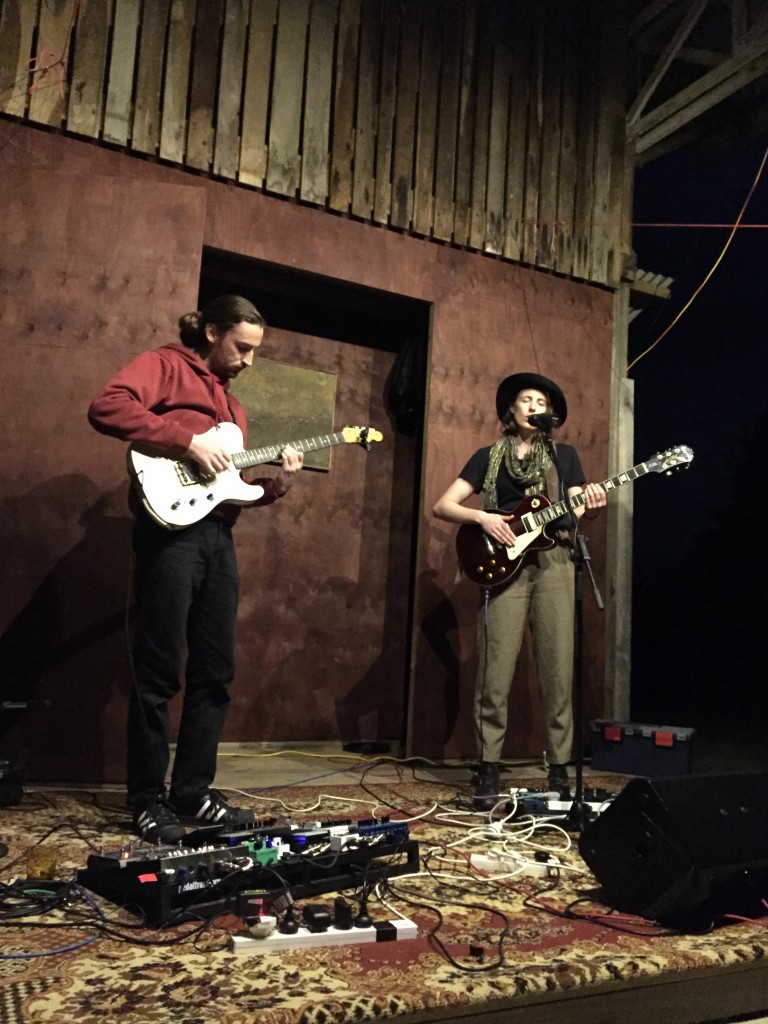
Day one’s headliner is Niger-born Bombino, who brings the house down with a raucous set of “desert-psych” (whatever that means). The crowd, predictably after so many ciders, dances up a storm. A beaded man sidles up to us and surreptitiously hands us a small glass vial, telling us to open the lid. We’re expecting something untoward, but he explains that it’s his friend’s homemade herb-infused olive oil that he wants everyone to try. We dip our fingers in and dance the night away.
Sunday
For those more sensible than I, Sunday begins with a spot of yoga by the lake. Instead we wake to the a cappella sounds of the Melatonins floating across the valley. After their set we see them in a tiny rowboat on the lake, presumably looking for the platypus too. We whittle away the morning in the Bedouin to the wistful tunes of Grand Salvo. Despite repeated power outages from a wayward generator, everyone is in high spirits, yelling jokes and laughing along during the wait.
Back by the lake everyone is eagerly awaiting what is quickly becoming a festival tradition – the great Panama clothes swap. Everyone scrambling to get their hands on the best clothes is the closest thing I see to a moshpit all festival. Later on I spot a middle-aged lady wearing the shirt I donated. I’m not sure what that says about my fashion sense but I’m glad somebody is enjoying it, at least. 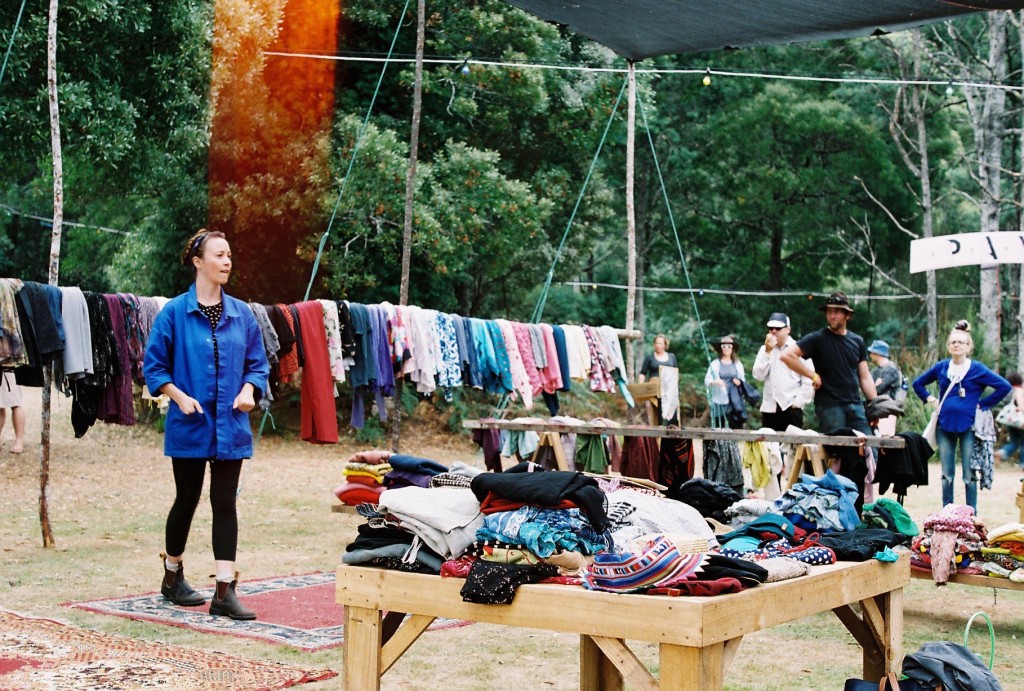
As the afternoon wears on the main stage heats up, even if the temperature doesn’t. Before each set the organisers come onstage to introduce each band, giving a quick back story about why they chose them for the festival. During a heavy set belying their name, the lead singer of Harmony stops and asks if his wife could please bring him a beer. #1 Dads brings along all of his guests from their excellent debut album About Face, while the guitarist surprises everyone by pulling out a sultry saxophone solo during ‘Camberwell’.
Sharon Van Etten is this year’s international drawcard, playing a slow-burning set as the sun dips below the tree line. She explains that she wouldn’t normally play slower songs at a festival but she feels that we’re all “here with her”. She’s not wrong – the crowd is rapt.
But it’s this year’s headliner Courtney Barnett that really brings it home. Sardonic as always, she opens with recent single ‘Depreston’ and continues though a mix of new tracks and favourites from her internationally-acclaimed double EP A Sea of Split Peas. Watching everyone from the bearded hipsters to flannelette-clad parents to baby boomers mouthing the lyrics, it’s pretty clear that no-one has captured the zeitgeist in recent years quite like Barnett and her laconic take on Aussie life.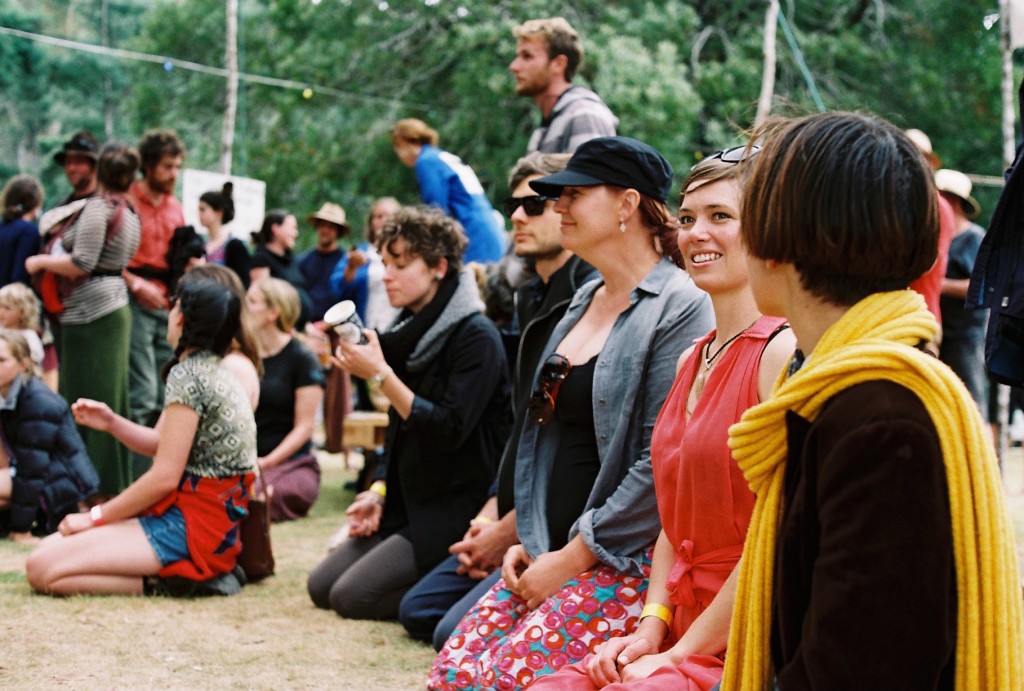
The festival rounds out with a bout of cabaret. As we’re watching a woman stark naked save for a pearl necklace mime ‘Total Eclipse of the Heart’, I realise why Panama is so special. Sure, it doesn’t have the pure spectacle of a band playing to 20,000 fans, but the people that are here aren’t just a ticket number. They play an active part in the festival. It’s evident in the organisers who come up on stage between acts to profusely thank everyone for being there. Or the bands that hang around after every set to have a cider with the audience. Or even our camping neighbours who warned us not to set up the tent near the nest of “jack-jumpers” (that’s bull ants for mainland Australians). People respond to that kind of treatment, too. The day after the festival Panama posted a photo of all the leftover rubbish from the campsites – no more than a small bag and an empty soft drink bottle. Panama has raised the bar. The Australian festival culture of the ’90s is dead. Long live Panama.
(All photos by Will Dawson)
Will is a writer, photographer and creative producer. Originally hailing from regional QLD (although don't hold that against him), he has lived in Berlin and Istanbul, and now calls Melbourne home. He spends most of his spare time staring at maps and working out what other far-flung country to move to next. He tweets at @willegitimate.

